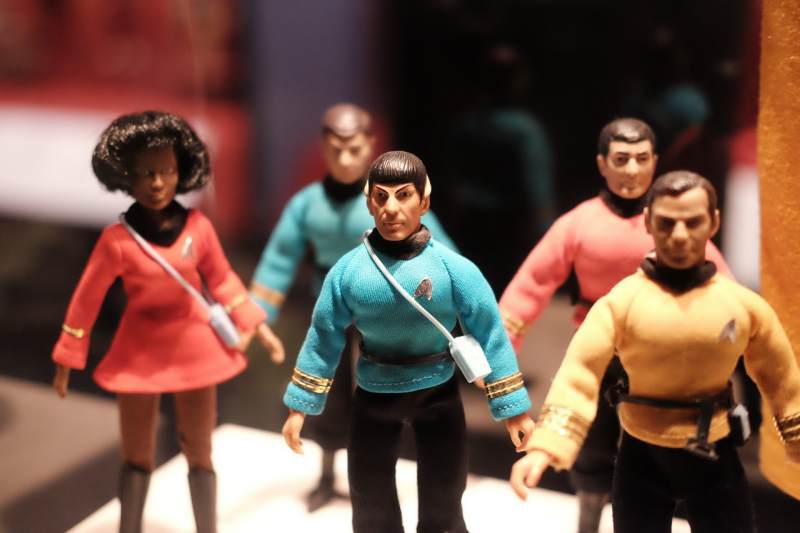
On September 8, 1966, a remarkable journey began that would take viewers on a voyage through the cosmos, exploring not just outer space but the complexities of the human condition. The first episode of Star Trek, titled “The Man Trap,” premiered on this day 57 years ago. As we celebrate this milestone, it’s worth reflecting on what this incredible franchise means to us, its enduring legacy, and the lessons it continues to impart.
The Visionary Creator: Gene Roddenberry
Star Trek owes its existence to the visionary creator, Gene Roddenberry. A former pilot and police officer, Roddenberry’s passion for space exploration and the potential of humanity led him to craft a series that would transcend the boundaries of typical television. His vision was not just about space battles and futuristic technology; it was about envisioning a better future for humanity.
- Roddenberry’s vision was a diverse and inclusive one, long before these concepts became mainstream. The diverse crew of the USS Enterprise, led by Captain James T. Kirk, included people of various races and nationalities working together in harmony.
- His insistence on addressing social issues through allegorical storytelling challenged the status quo. Episodes like “The Trouble with Tribbles” subtly commented on overpopulation, while “Let That Be Your Last Battlefield” tackled racism.
Gene Roddenberry’s vision laid the foundation for a franchise that continues to inspire and provoke thought to this day.
Science and Technology: Inspiring Innovation
Star Trek has always been known for its futuristic technology. From the communicators that inspired flip phones to the tricorders that foreshadowed handheld devices, the franchise has played a role in shaping our technological aspirations.
- The influence of Star Trek on the development of real-world technology is well-documented. The flip phone design was directly inspired by the communicators used by the crew members to communicate with each other and the ship. In fact, Martin Cooper, the inventor of the first handheld mobile phone, cited the communicator as his inspiration.
- The concept of a universal translator, which allowed characters of different species to communicate seamlessly, has parallels in modern machine translation and voice recognition technology.
Star Trek challenged scientists and engineers to turn science fiction into reality, and it continues to do so, pushing the boundaries of what is possible in the realm of technology.
Exploring Social Issues: A Mirror to Society
One of the most remarkable aspects of Star Trek is its ability to use science fiction as a lens to examine contemporary social and political issues. The show often confronted viewers with allegorical tales that mirrored the challenges and controversies of the real world.
- For instance, the episode “The Measure of a Man” delved into the concept of artificial intelligence and personhood, raising questions about the rights and dignity of sentient beings. This is a topic that remains relevant today as we grapple with the ethics of AI and robotics.
- Similarly, “The Outcast” explored themes of gender identity and discrimination in a powerful way, challenging societal norms and prejudices. It was ahead of its time in addressing LGBTQ+ issues, paving the way for more inclusive storytelling in later iterations of the franchise.
By addressing these complex issues within a science fiction context, Star Trek encourages viewers to think critically about the world around them and consider alternative perspectives and solutions.
Legacy Beyond the Screen
Star Trek’s impact goes far beyond the confines of the television screen. It has inspired countless fans to pursue careers in science, technology, and space exploration. NASA astronauts like Mae Jemison and Charles Bolden have cited Star Trek as an influence on their career choices.
Moreover, the franchise has sparked a sense of community among its fans. Star Trek conventions, fan clubs, and online communities provide spaces for fans to connect, share their passion, and discuss the show’s themes and messages. The sense of belonging and shared values within the Star Trek community is a testament to the enduring power of this franchise.
Conclusion: Boldly Going Forward
As we celebrate 57 years of Star Trek, it’s clear that this franchise is more than just a television show. It’s a vision of a hopeful future, a source of inspiration for innovation, a mirror reflecting the complexities of our society, and a community that fosters a sense of belonging.
Star Trek challenges us to aspire to be better, to explore the unknown, and to embrace diversity and inclusivity. It reminds us that the human adventure is just beginning, and there are always new frontiers to explore, both in the cosmos and within ourselves. So, here’s to Star Trek, and may it continue to boldly go where no one has gone before for many more years to come.
